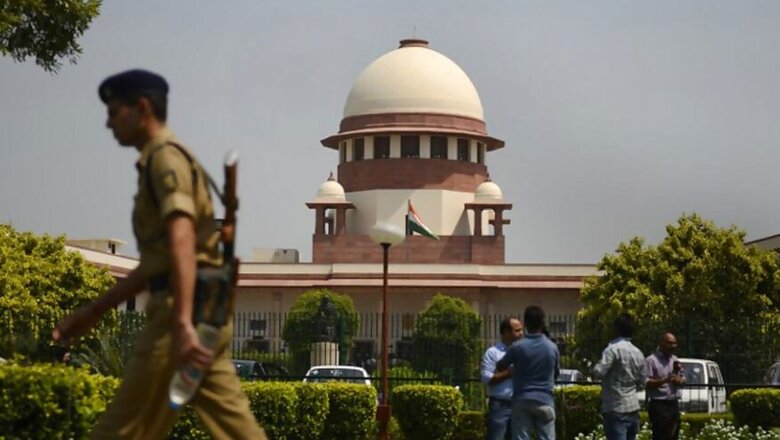
views
The Supreme Court has refused to set aside the election of UDF candidate NK Premachandran from Kerala’s Kollam parliamentary constituency over his statements against the entry of women of all ages in the Sabarimala temple.
A bench headed by Chief Justice of India SA Bobde declined to entertain the appeal filed by the rival CPM’s candidate, KN Balagopal, who had lost to Premachandran by a margin of almost 1.5 lakh votes in the Lok Sabha elections last year.
“We don’t see how such comments can lead to disqualification. Where is the corrupt practice under the Act for making him liable? There are not sufficient materials,” Bobde told advocate PV Dinesh who represented Balagopal.
Dinesh read out certain statements purportedly made by Premachandran against the CPM and the LDF that their leaders are not believers of Lord Ayyappa and if elected, they will ensure the entry of women of all ages in Sabarimala temple in order to insult its believers.
Balagopal’s election petition also mentioned the said speech added that the leaders of the former’s political party would also ensure that women offer prayers along with men in mosques during ‘juma’ prayers on Fridays and that churches are administered by government officers and would thereby insult believers belonging to those communities as well.
Dinesh contended that the essence of the speech by Premachandran was therefore to elect him to prevent the entry of women of all ages to Sabarimala and so prevent divine displeasure and spiritual censure.
The lawyer argued such statements would qualify as corrupt practices under the relevant provisions of the Representation of People Act, 1951, warranting Premachandran’s election to be set aside. Dinesh added that such acts also violated the Model Code of Conduct of the election by making indirect appeals to the religious feelings of the electors.
But the bench, which included Justices AS Bopanna and Hrishikesh Roy, remained unimpressed. It said the Kerala High Court was right in noting that even if assuming that Premachandran made these comments, the pertinent provision of the Act cannot be invoked since he was not a ‘candidate’ nor was there a notification for election when the impugned speech was made.
The apex court also agreed with the High Court that the contents of the speech cannot be said to be inducement or an attempt for inducement of such a nature which ought not to have given the electors a choice other than voting in favour of him.
















Comments
0 comment